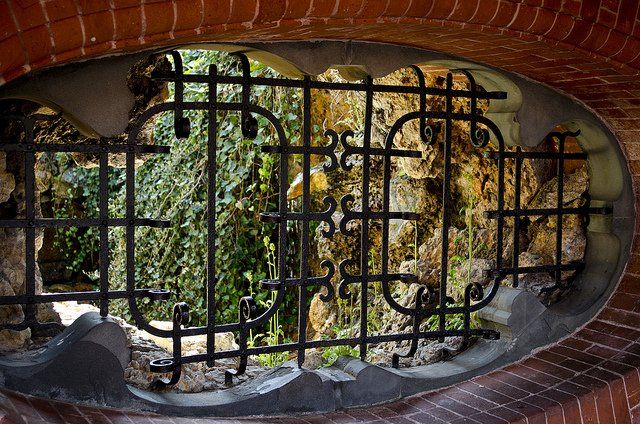Personal Profundity
"A map with a clearly marked path to profound living isn’t possible, and in reality I’m grateful that it is not."
“If the doors of perception were cleansed, everything would appear to man as it is, Infinite.
For man has closed himself up, till he sees all things thro’ narrow chinks of his cavern.”
William Blake, The Marriage of Heaven and Hell
Personal Profundity
by
Kelly Anderson
For me, it’s natural to seek understanding of big things by contemplating the parts, and that’s exactly how I’ve approached profound living. I’ve tried to understand the idea of profundity through glimpses of its elements, things which have presented themselves as I peer through the “narrow chinks” of my cavern. I’ve enjoyed this process; it’s felt serendipitous with moments of grace. However, I’m starting to feel the need to see the big picture, how these elements will fit in a deeply profound life. I’m curious about what I would see if I could cleanse my “doors of perception”, climb out of my cavern, and take a look at the infinite landscape. In addition to more fully understanding and appreciating qualities which shape the profound, I’ve been wondering how these things might come together in a richly profound life.
So far, I’ve spent time thinking about a range of virtues, attitudes, and practices which lend themselves to the profound. And, while reading about one of these elements, the virtue of humility, I stumbled upon an idea which grabbed my attention. In his beautiful little book, Humility: The Quiet Virtue (introduced by Michael Kroth in ‘Intellectual Humility’ and other essays), Everett L. Worthington Jr. wrote “What is virtuous is understood within context. The scope of our context … determines the virtues we pursue.” I think it may also be fair to say that profound living is understood within context, and this has reminded me that it’s important to clarify the scope of my own context - to have a framework within which to gather and connect the elements which will align with my profound life. Profundity is personal.
Worthington used examples from psychologist Martin Seligman to provide a foundation for his readers to consider their scope of context. According to Worthington, “Seligman suggests that people can pursue the happy life , which is focused on their own pleasure; the good life , which benefits self and others; or the meaningful life , which gives a noble purpose to self and others. What is virtuous is understood within context”. I believe that my profound life is a meaningful life, so based on the suggestions, my focus should be within the broad context of my greater purpose.
A part of me wishes this big, fuzzy scope of context could be defined in a nice, tidy map with a bold red arrow identifying ‘You’re Here’ and directions pointing to the ‘Happy Valley of Profound Living’. Maybe I could head out on Character Lane, travel up Integrity Hill, take a right on Purpose Drive (at The Humble Pie Diner where I could fill up on virtues), and then descend along Meaningful Way to arrive at my final destination in the Meadow of Moments. There are times when such a ‘Map of Kelly’s Profound Life’ would be very welcome. But, of course, this isn’t how it works. A map with a clearly marked path to profound living isn’t possible, and in reality I’m grateful that it is not.
The landscape of life is vast, my terrain is unique and constantly shifting, and I’m continually evolving. And, I find joy in the obscure nature of this journey. I’m delighted with the aha! moments, when the hint of a truth emerges from the shroud of mystery, and I’m working to accept the uneasiness and vulnerability of uncertainty. Nevertheless, I believe that some clarity of context would help me wrap my arms around this vastness of big ideas and grasp meaning in the beautiful moments which emerge out of my exploration of a profound life. Keeping the full scope of context in mind might ground me, just a bit.
So, I’m going to try to embrace this profound adventure in a balanced way. I’ll continue to explore and refine the virtues, attitudes, and practices of a profound life as they are revealed to me “thro’ narrow chinks”, and also make a deliberate effort to try to cleanse my “doors of perception”, step out of my cavern, and survey the landscape. Through this, I hope to gain a more full sense of what profound living means in the context of my unique life.
Resources
Humility: The Quiet Virtue by Everett L. Worthington Jr. (p. 69)
Image: Grotto Through the Grate by Tim Evanson ( Licensed CC BY-SA 2.0 )
"According to Worthington, 'Seligman suggests that people can pursue the happy life, which is focused on their own pleasure; the good life, which benefits self and others; or the meaningful life, which gives a noble purpose to self and others. What is virtuous is understood within context'. I believe that my profound life is a meaningful life, so based on the suggestions, my focus should be within the broad context of my greater purpose."











